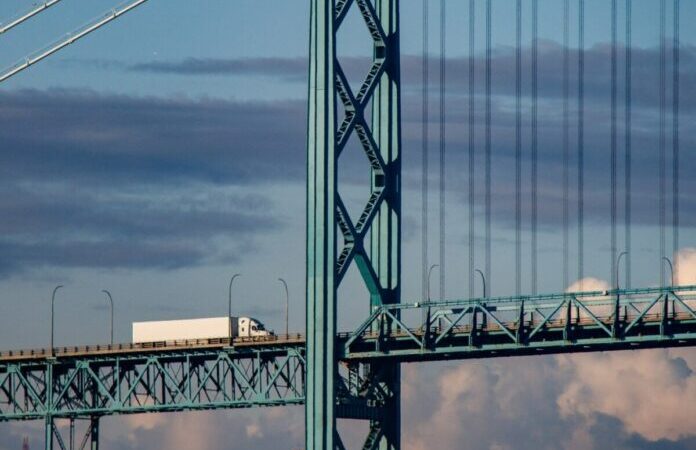Officials are now allowing new types of hazardous material to be transported on the Ambassador Bridge between Detroit and Canada.
Effective October 29, 2024, the Michigan Department of Transportation (MDOT) now allows the transport of fuel and battery materials over the Ambassador Bridge linking Porter Street in Detroit to Windsor, Ontario.
Specifically, MDOT lifted restrictions on Class 3 (flammable liquids) and Class 8 (corrosive materials) for transport on the bridge.
“Lifting the restrictions reduces the number of miles driven by commercial motor vehicles hauling fuel in Michigan by over 250,000 miles annually, providing a substantial net safety benefit to the State of Michigan. It will not create any material truck traffic increases on the Ambassador Bridge. These materials do not include radioactive materials or hazardous waste. These truckloads will be escorted across the Bridge by safety vehicles. The fire suppression system on the Ambassador Bridge meets all applicable codes, is designed to address incidents arising from all of the foregoing materials and is regularly inspected by the City of Detroit Fire Department and the City of Windsor Fire and Rescue Services,” Ambassador Bridge officials said in an August 30, 2024, statement.
MDOT made the decision to allow Class 3 and Class 8 hazardous material transport on the Ambassador Bridge following review of public comments and meetings with law enforcement and first responders. The agency collected more than 80 letters from elected officials, business owners and other members of the public, many expressing support for relaxing the HAZMAT restrictions.
While Windsor city officials have expressed concern about the dangers associated with allowing new types of hazmat onto the Ambassador Bridge, members of the trucking community stand to save a lot of time.
Truck driver Brian Wilkins told CBC that his normally five and a half hour route hauling Class 3 flammable materials between Detroit and Windsor now only takes 30 minutes because he doesn’t have to drive all the way to the Blue Water Bridge near Sarnia and back.
“It’s so stress relieving — especially right before the winter. I can sit here and tell you horror stories of taking those back roads trying to get up to Port Huron when it’s snowing like crazy, the roads are icy — and behind I have 30,000 pounds of the most wicked stuff you can think about,” Wilkins told the outlet.


